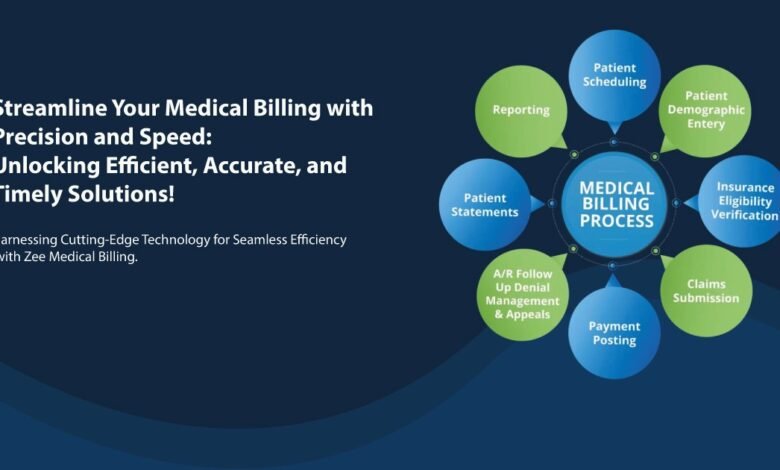Streamlining Appeals Processing in Medical Billing: A Dozen Simple Steps to Follow

Wondering what to do if your insurance rejects a medical bill claim? Good news, you can appeal! There are specific steps to follow for medical billing appeals. Curious about successful appeal strategies for denied claims? We’ve got you covered with ten helpful steps to ensure your payments come through smoothly. Remember, your health plan won’t punish you for questioning denials. While facing rejections might be annoying, let’s explore the reasons behind them. In this article, discover ten steps to improve your business’s appeal processing.
Appeals Processing in Medical Billing: 12 Simple Steps to Follow
- Get the Healthcare Provider’s Bill:
-
- Ask if the insurance covered the bill.
- If not, find out why.
- Ask Important Questions:
- What was the diagnosis?
- Why are there no codes on the bill?
- Clarify any discrepancies, like surgery on the wrong shoulder.
- Question Billing Details:
- Understand why you’re charged for various services.
- Discuss any billing differences from previous experiences.
- Note Concerns:
- Take down names and numbers.
- Ask the representative to document your objections for future reference.
- Collect Additional Records:
- Gather other medical records.
- Verify the bill or insurance claim in writing.
- Communicate Clearly:
- Inform healthcare professionals about your concerns.
- Inquire about the process for disputing charges in writing.
Outsource when it’s needed
Outsourcing appeals processing in revenue cycle management streamlines the intricate task, ensuring accuracy and efficiency. possess specialized knowledge, reducing errors and speeding up medical billing services up the process. This approach optimizes the revenue cycle, leading to quicker resolution of appeals and timely payments. It allows healthcare providers to focus on core functions, enhancing overall financial performance and operational effectiveness.
Get the Insurance Record
- When dealing with medical billing appeals, grab your Insurance Record.
- Use your EOB (Explanation of Benefits), though it might not tell you much.
- It’s good to get payment authorization and commitment upfront.
- Check what got paid and what’s still on you. Any clarifications on the bill?
- Follow the same steps you took for the healthcare provider’s account.
Get the Employer’s Policy and involve the Employee if required:
If you’re having issues, HR can help. The employer is vital to the insurance process. If a claim is denied, the employer, who pays for claims, needs to know. Make sure the employer’s policy is considered at every stage.
Answer the Patient’s Questions:
- Patients might not understand their medical bills. Common questions are:
- Why am I charged for this?
- What does this mean? Explain, please. For terms like “anesthesia,” what’s the CPT code?
Question the Insurance Company and Follow the Appeals Processing in medical billing:
Always question the insurance company about your claims. Ask:
- Why won’t you pay for this charge?
- Why no payment? Can you check again?
- Where in my policy does it say this?
- Check the explanation of benefits for appeal steps. Incorrect codes may cause rejection, and clarifying things with the insurance company can resolve confusion. You may find answers to your questions.
When dealing with medical billing and insurance, it’s important to ask the insurance company about your claims. Ask them:
- Why didn’t you pay for this charge?
- Can you check again why you’re not paying?
- Where does my policy say this?
- If there’s an appeal process in your explanation of benefits, make sure to follow it. Sometimes, a wrong HCPCS code can lead to a rejected bill and confusion with the insurance company. Keep asking questions to get the answers you need.
Look at what you need to pay:
- Your insurance company might have a deal to pay a certain amount for a specific service with a particular provider.
- This info might be on your bill, and it could say you don’t have to pay anything.
Sometimes, you might have to cover the difference between the original price and what your insurance pays.
- It depends on your plan, if you already paid your deductible if there’s co-insurance, and other factors.
Reminder:
• Gather paperwork and send it to everyone on the list.
• Clearly state that you need the issue fixed within 30 days and check back later.
You might pay less for medical bills:
- Usually, bills have a high “chargemaster price,” like a sticker price. It can be way too much.
- If you pay right away, doctors might agree to a lower price.
- They could also let you pay a small amount every month.
- Some say to wait until the bill goes to a collections agency, but we don’t suggest that.
Financial Help From Government
- Getting help with money from the government is something people sometimes do.
- This help can be from the hospital, the state, or somewhere else, but it takes time, and you’re not always sure you’ll get it.
- It’s better to discuss the cost beforehand, so you know what you can afford, rather than trying to figure it out after.
Report back with this info
• In your area, Medicare pays healthcare providers for your procedure.
• This payment is like a fixed or benchmark price in the marketplace.
• Complete the process for timely revenue payments.
Final Thoughts
Medical billing appeals can get tricky. Follow accurate steps to process appeals without faults. Outsourcing claims to experts might provide better relief for you and your business.




